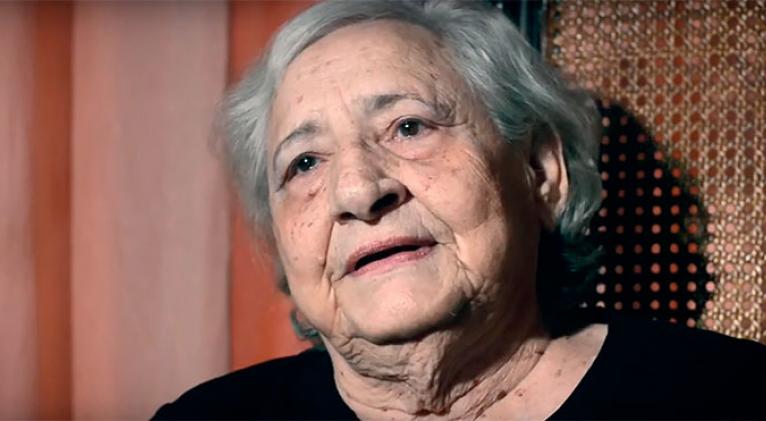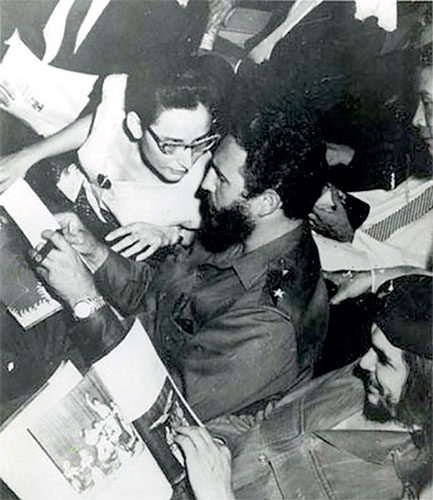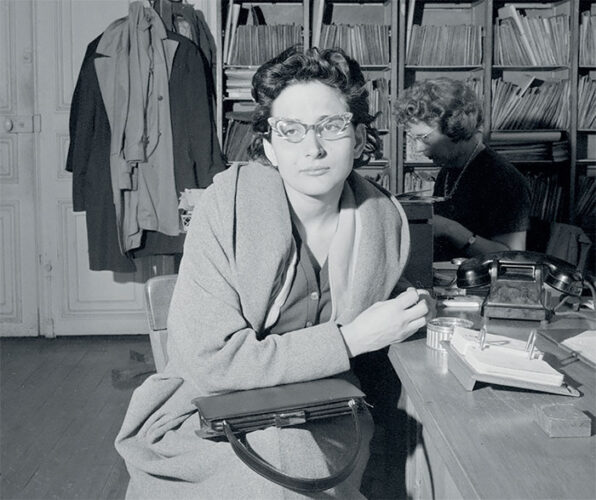Isabel’s Commitment and Joy
especiales

At first she sold bonds, procured and distributed medicine and clothing for the Sierra Maestra fighters, but she wanted to do more. In 1958, she was arrested for participating in an action to transport weapons. Through the efforts of an uncle, she was able to go into exile in the United States, where she continued to be linked to the actions of the M-26-7. Until the victory in January 1959.
She returned to Cuba. «I came with all the desire in the world to join the wonderful whirlwind of a revolution.”
Since she was passionate about philosophy, to which she had devoted her university studies, it was almost natural for her to be entrusted with tasks related to ideology. She was also involved in culture from the beginning.
«It was based on the tradition of our history, on the examples of great committed intellectuals, people who were not content to resist the colonialist wave from their birth, but made substantial contributions to the struggle, through their own work and actions. José Martí, for example, who was not only a literary genius, but also a political genius. It is not that I want to compare myself with these figures, nor does it occur to me to do so, but I have understood that in this great impulse that is an authentic revolution, culture has much to contribute. Without culture, there is no revolution.
She dedicated herself to culture. One day they knocked on her door to tell her that she had been appointed director of the National Theater of Cuba (NTC), «which was a kind of white elephant, an unfinished mass. I was shocked by the news, I was amazed… but I didn’t lose heart. When one enthusiastically joins the collective work of a revolution, one often does not stop to evaluate the risks or the conditions. You march, you give yourself, you work…».
Isabel Monal’s work as the first director of the NTC marked a before and after in the Cuban culture of her time, although in her modesty she resists such praise. It was a foundational work.

With Fidel Castro and Ernesto Guevara during a Peking Opera performance at the Amadeo Roldan Theater. Photo: Granma Newspaper Archive
«All I know is that I took it on with enthusiasm and responsibility, but without sterile formalities. We could not wait for resources, we had to use this potential, this desire to make art. Because there was a great need for culture, for beauty among the people.
Important institutions such as the National Symphony Orchestra or the current Danza Contemporánea de Cuba, at that time the Department of Modern Dance, were born in this theater. From there, visits by important groups and intellectuals were arranged. In short, it became an important cultural center that marked many paths.
«It was a hotbed, a laboratory, a space for discussing the essential issues of creation. It was one of the most fulfilling moments of my life. I felt useful. And knowing that I was useful, beyond the satisfactions of everyday life, has always been a mainstay of my conception of life.
Dr. Isabel Monal has not stopped working. «I have never seen work as an obligation or an imposition. It has been spiritually nourishing. I have accepted this honorary title of heroine, which has touched me deeply in my heart, with great humility. And I am very pleased to be recognized for what makes me happy.
She is a reference in the social sciences in Cuba. She has bet on the validity of Marxist ideology, adopted without dogmatism, in dialogue with the political and cultural heritage of Cuban revolutionary thought. «I don’t like to make artificial segmentations: if I have made a contribution, it has come from the integrality of a vision, from sincerity and attachment to an idea of justice».

At the headquarters of L’Humanité, France. Photo: Courtesy of the Maria Lastayo Center
Isabel Monal is not deterred by obstacles. «I always believe in the possibility of a better world. And I believe that it must be a collective work. I always think of my teachers, in elementary school and at the university, in Cuba and in the United States; I think of my comrades in struggle and work; and I think of Fidel, that giant. How lucky I was to be his contemporary, what a privilege to follow him.
Dr. Monal laughs heartily, as if she is chasing away her own and other people’s demons with her laughter. «We have to appreciate joy much more, despite the blows of life. Like everyone else, I have suffered, but I have found the strength to go on. I am a fulfilled woman because I was and am part of something that transcends me and to which I have devoted my efforts and my abilities. Every time I see a young person doing well with what is rightfully his, I am happy because I know that our struggle was not in vain. I did not want fame, I wanted to contribute. I will always believe that the revolution must be a permanent process in the search for human dignity and full freedom.














Add new comment